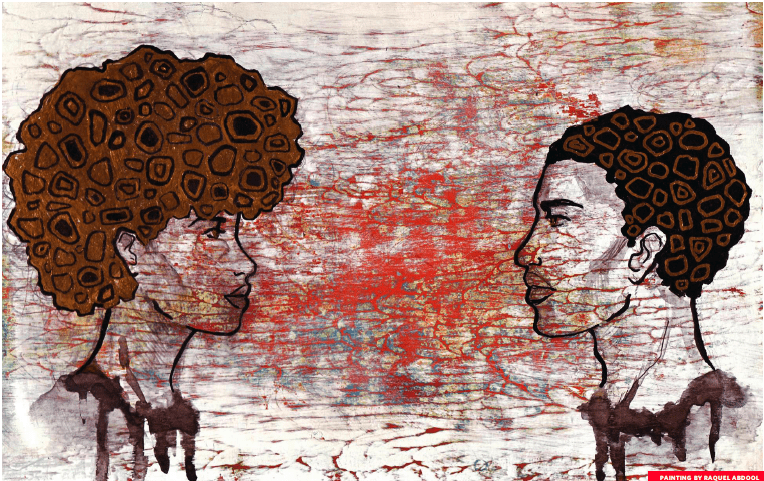I am not my hair, I am not this skin, I am not your expectations,” are likely the most celebrated lyrics in India Arie’s career.
The mantra is the soundtrack that has always provided us black women and girls with a dose of self-esteem, encouraging us to be proud of our hair no matter how we wear it.
Although the song carries meaning beyond measure, I can’t help but wonder—why do we as black people define ourselves by our hair so much?
And why do we let non-blacks do it to us as well? Why do we so often fail to fight the stigma that comes with rocking natural hair (i.e. “it’s too kinky”)?
If our generation of black women is supposed to embrace the “natural hair movement,” why are young black girls being discriminated against because of their hair in school—one of the places where instilling the virtue of acceptance is vital?
In 2013, there were two high-profile cases of discrimination in the U.S. against young black girls at their schools based on how they wore their hair.
Now infamous, seven-year-old Tiana Parker’s case left me disheartened. In September 2013, it was reported that Deborah Brown Community School in Tulsa, Oklahoma sent Parker home for what was deemed an “unacceptable” hairstyle: short dreadlocks, which were pinned back with a bow.
After being blasted by numerous media outlets, Deborah Brown Community School changed their original policy on hairstyles, which stated “hairstyles such as dreadlocks, afros, mohawks, and other faddish styles are unacceptable.”
Tiana’s parents still eventually chose to move Tiana to another school.
Sadly, Tiana was not alone in her experience.
In November 2013, 12-year-old Vanessa VanDyke was told she had a week to decide whether to cut her natural hair, worn in an afro, or risk expulsion from Faith Christian Academy in Orlando, Florida.
This ultimatum arose when VanDyke’s mother raised an issue with the administrators of the school, saying VanDyke had been bullied by classmates because of her “puffy” hair.
Astoundingly, the administrators blamed VanDyke for being the target of her peers’ jokes, and said her hair was a “distraction.”
VanDyke went on the record in defense of her hair, “It says that I’m unique[…] It’s puffy, and I like it that way.”
I’ve read many articles written by black women expressing their dismay about the examples set for young black girls. So many of them are introduced to chemical treatments (such as relaxer) and heating tools to alter the texture of their hair at a young age, sowing the seeds of a cycle that is always hard to break—both because of the psychological and physical elements of embracing natural hair.
That is why it’s so upsetting to hear about these young girls who had enough courage and self-love to go against the grain and got bashed for it in return.
I understand black girls are internalizing standards of beauty that are causing them to be unwittingly dependent on treatments, heat, and weaves because that’s what they were nursed to believe when they were young. There is no question it’s an issue when it’s an addiction and not just a preference, but personally I cannot say I identify with the victims of this endemic.
Growing up, I was lucky to have hair that was considered to be “good” because it was long. Instead of having my hair relaxed or treated in any other way, my parents were overprotective of it when I was a kid.
They taught me it was my duty to guard my hair, as if someone could easily snatch it away from me. I was made to feel different from many of the other young black girls at school, but my hair wasn’t my own—it was my parents’ prized possession.
I didn’t come to this realization until I got into high school. When I did, I was bitter.
My parents are not nearly as domineering over my hair as they once were, but there are still remnants of that old behaviour.
My parents will still interrupt themselves to comment on how I should do my hair when I go out. The intense concentration in their eyes as they watch me style still irks me. There is just too much concern.
It’s insulting that so much of my personhood is based on how my hair looks.
But despite my parents’ invasive involvement in my hair as a child, I am glad that they took pride in it and fed me courage instead of Dark and Lovely hair products for kids or the notion that my curly locks were too hard to deal with.
Without my parents instilling in me the belief my hair is beautiful, I could have easily become addicted to “creamy crack” as many others do. I am thankful my mother didn’t let me get a flat iron until I was 13. Any younger and I would have insisted on having it that way all the time by habit.
I am proud I am able to embrace my natural hair in all of its thick, frizzy, tangled glory, and I hope in due time, more of my fellow black sisters come to embrace theirs as well.
Salem Tesfai
Contributor



